Trump’s tweets raise specter of resumed nuclear tests in Nevada
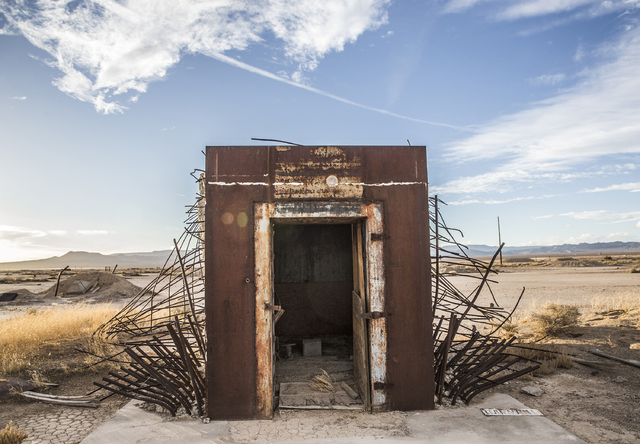



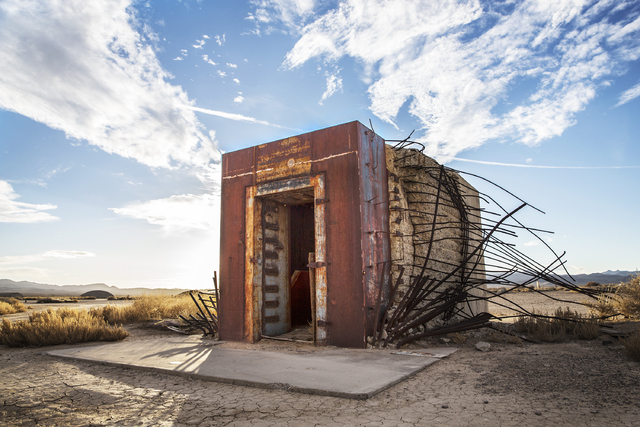
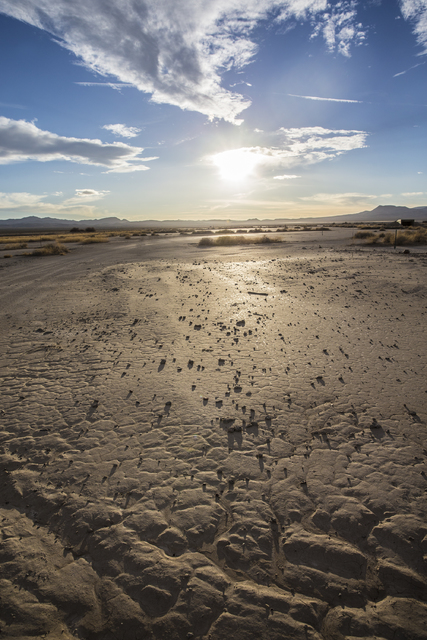
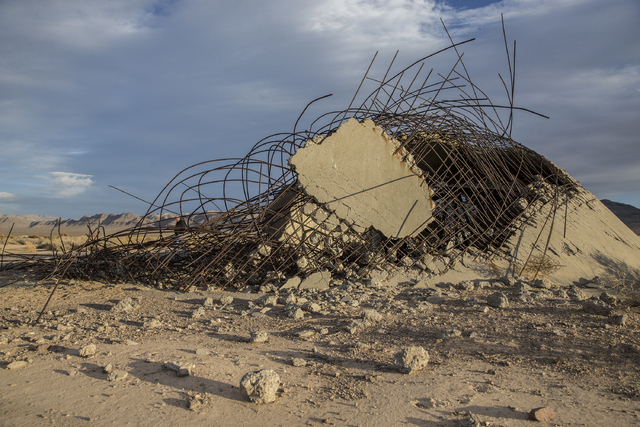


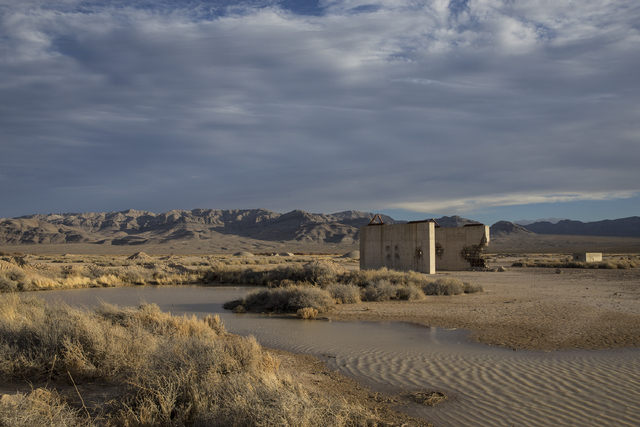


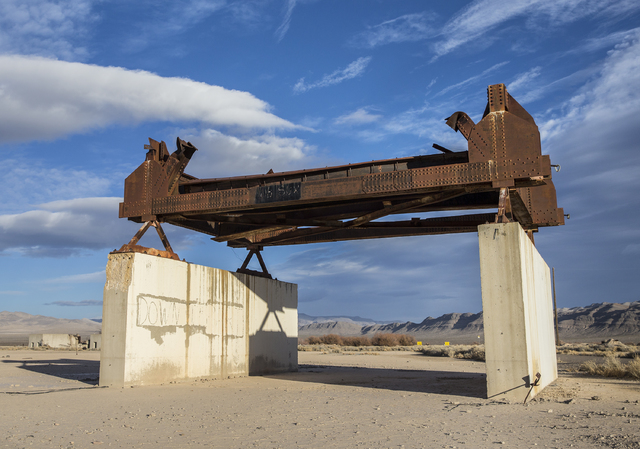
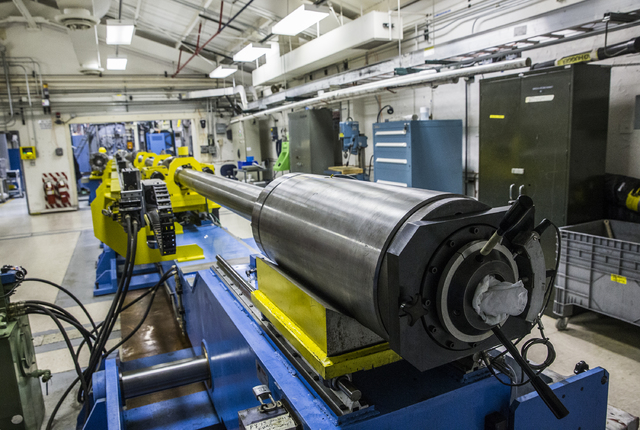
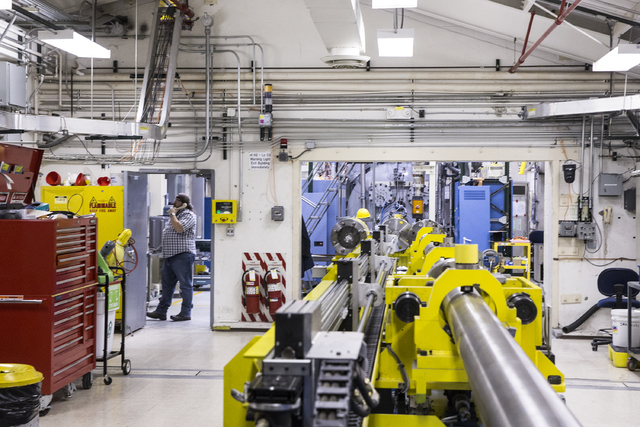
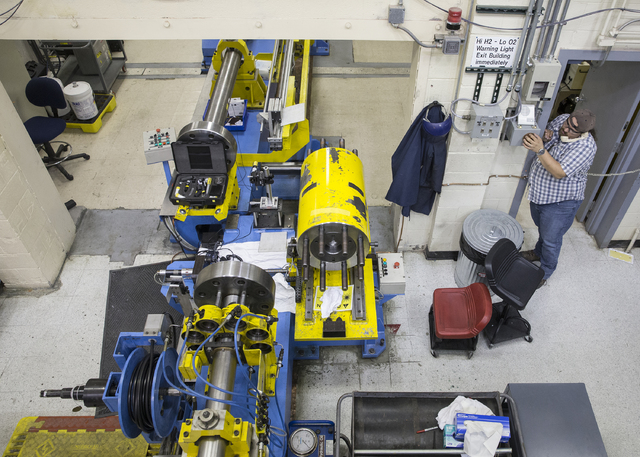
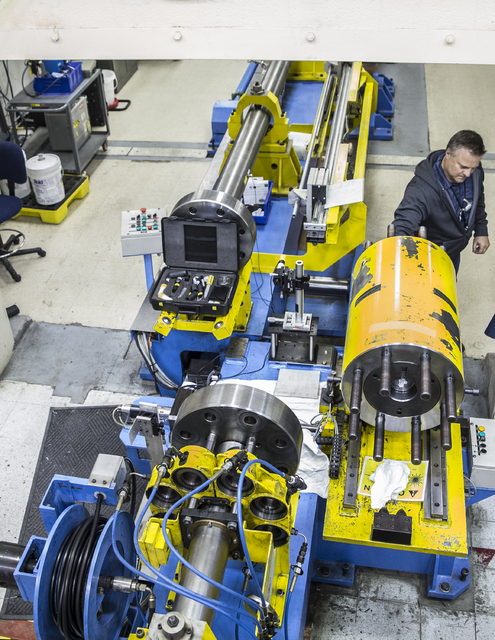


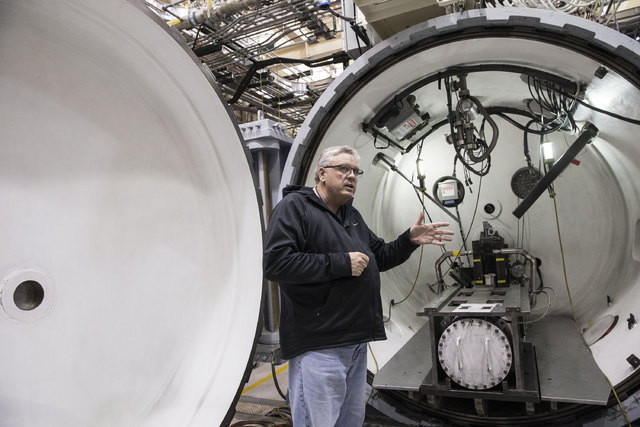
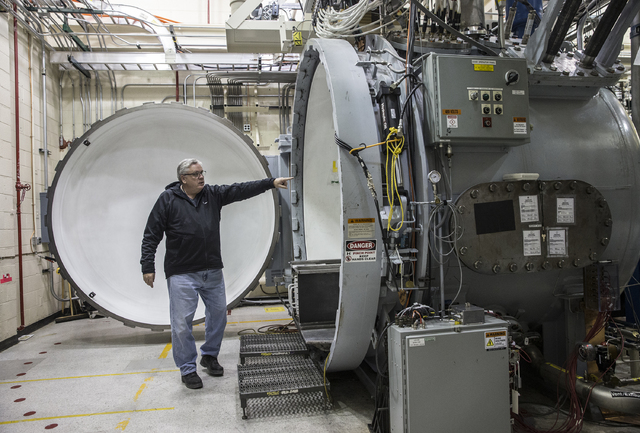
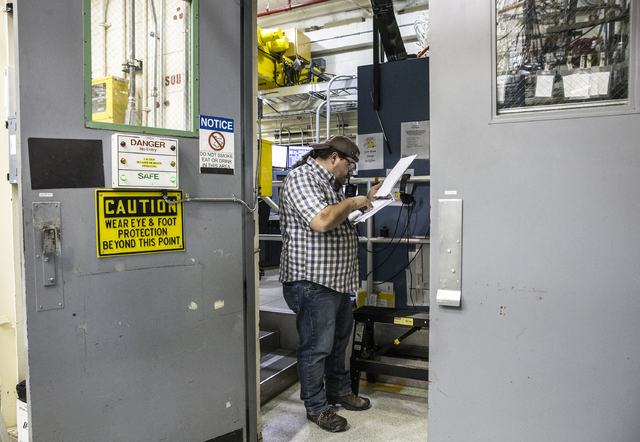
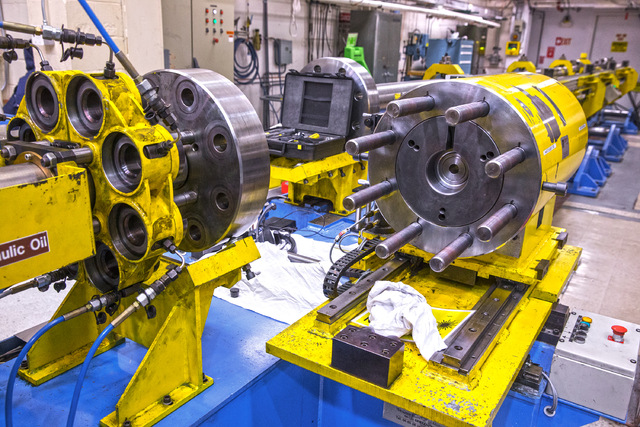

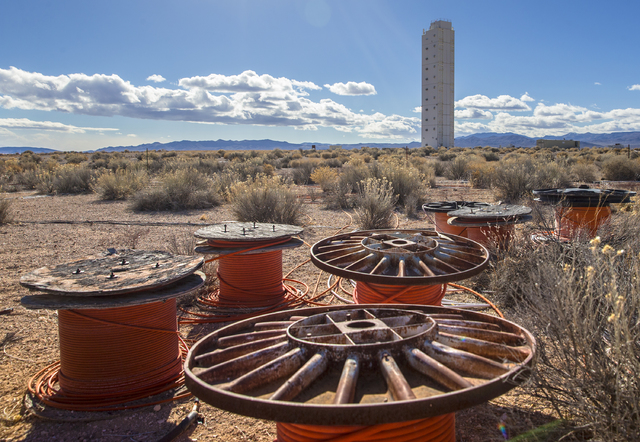

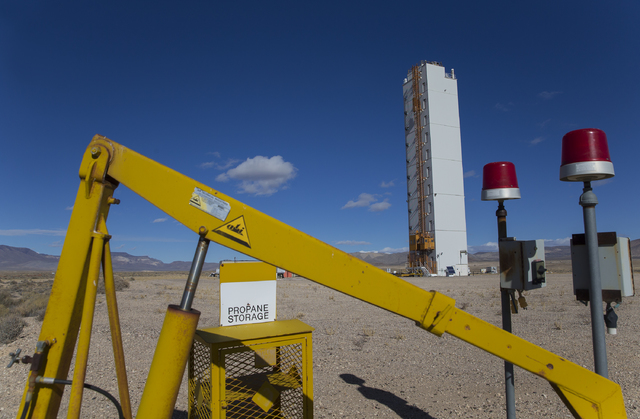
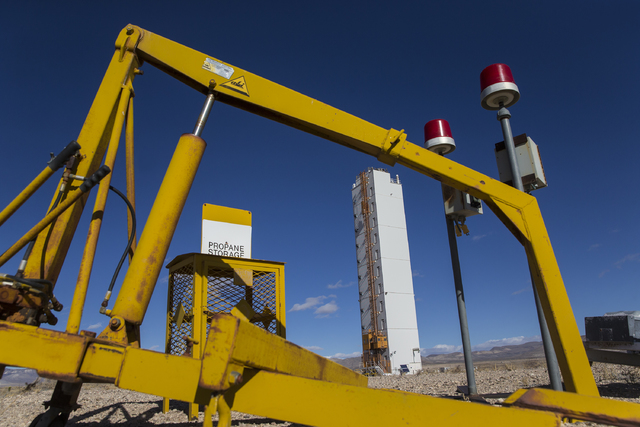
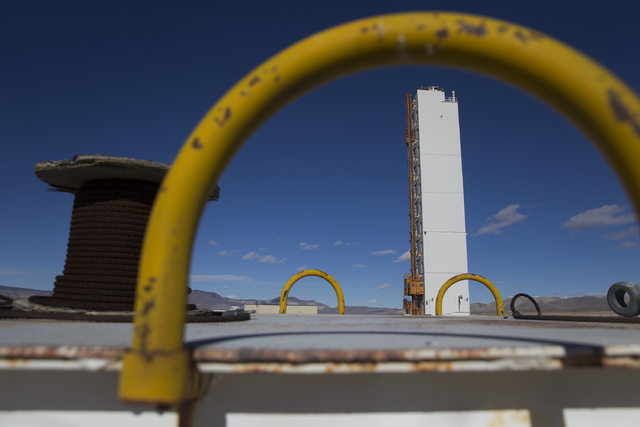
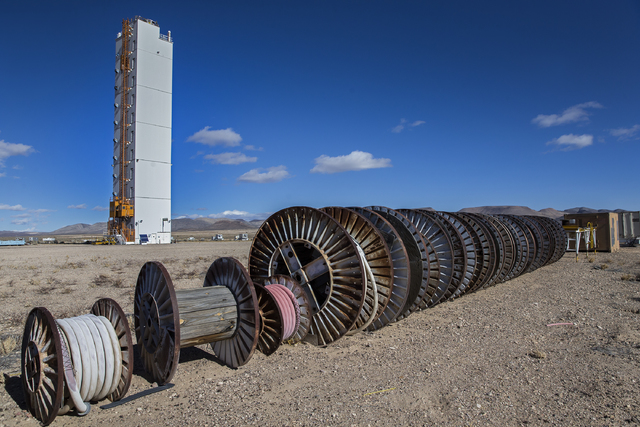
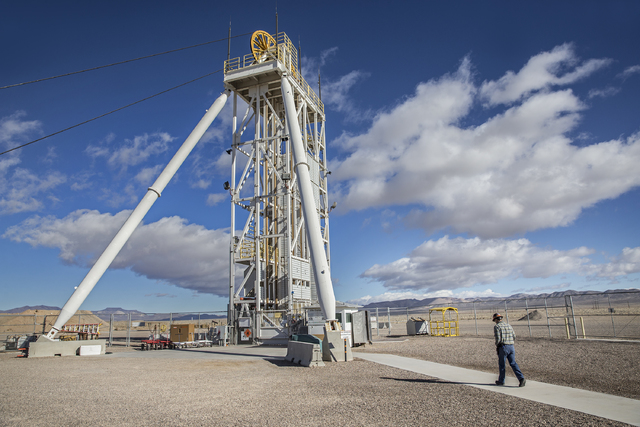


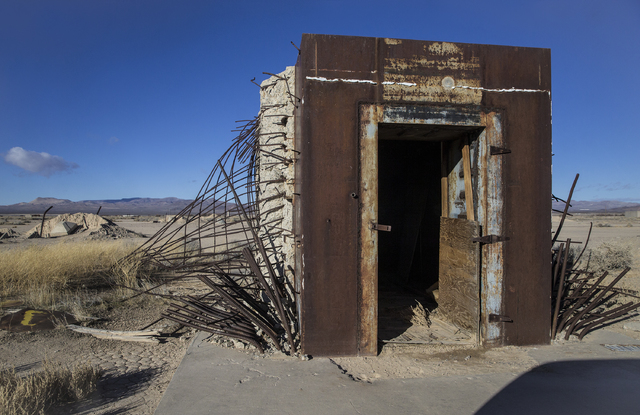

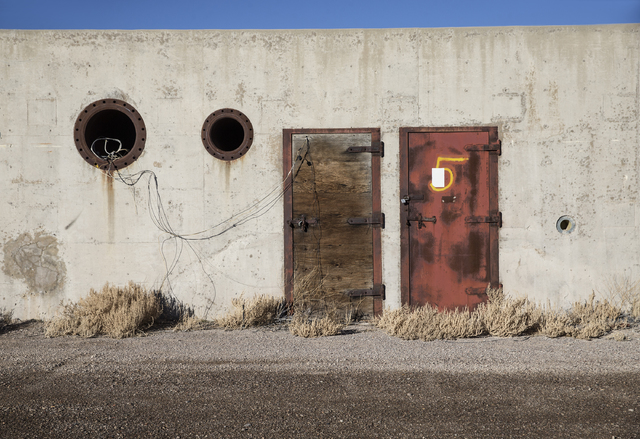
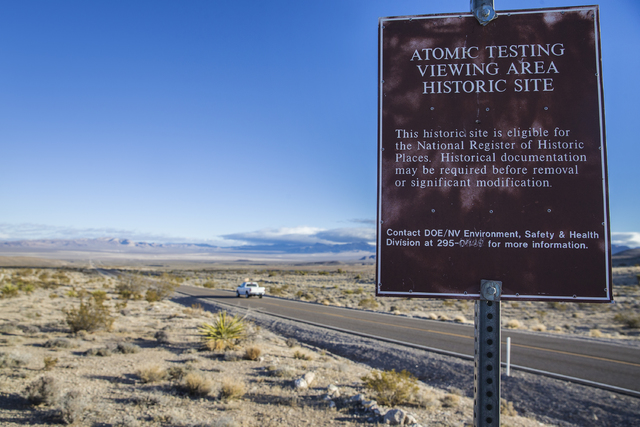
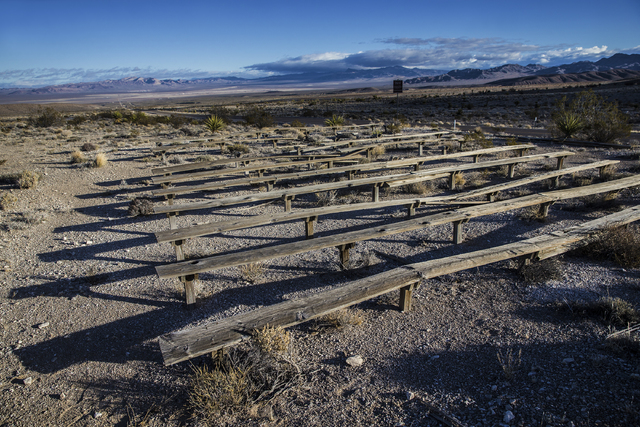

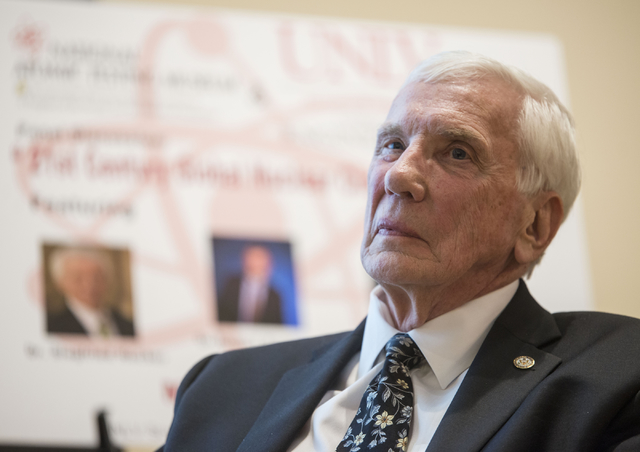
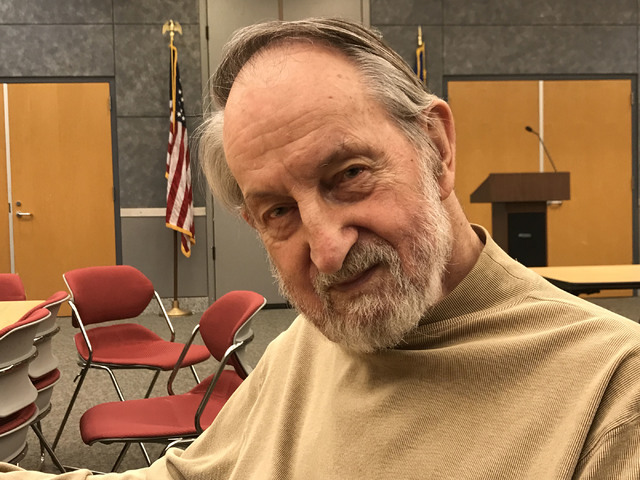

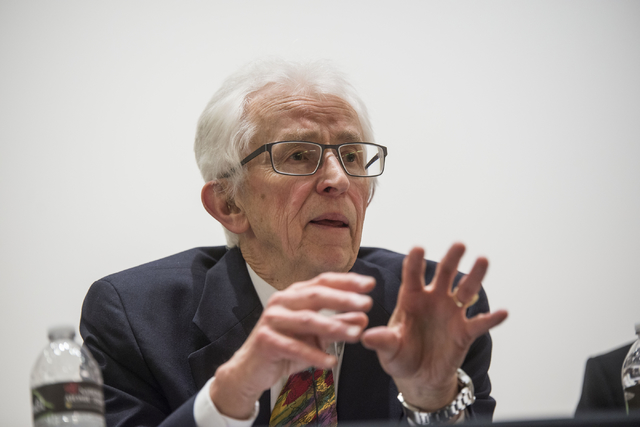
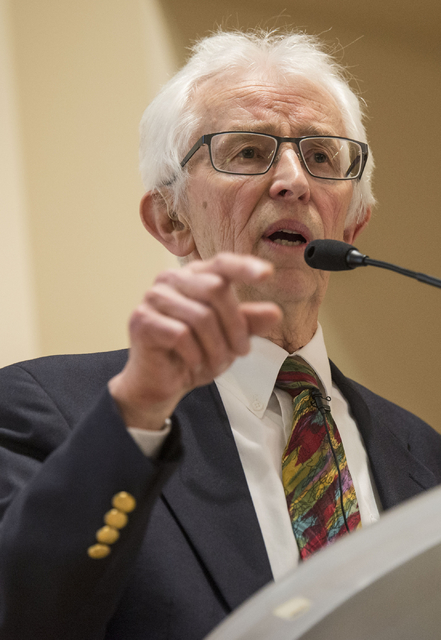
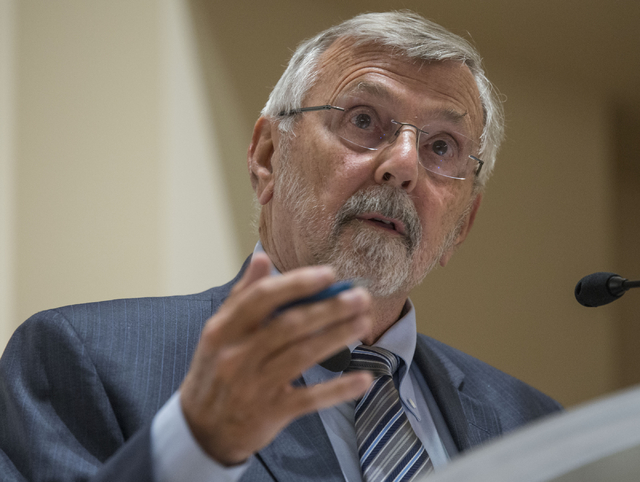
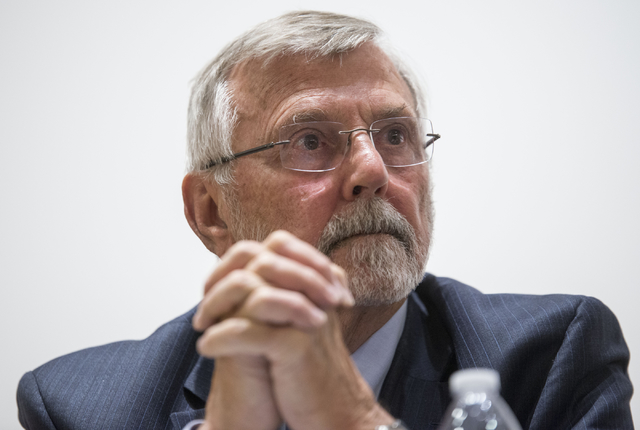

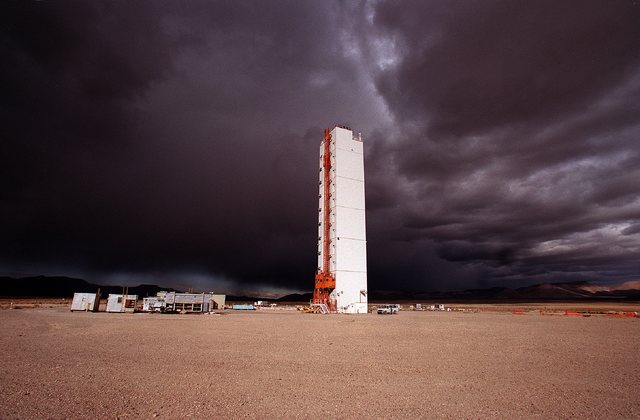
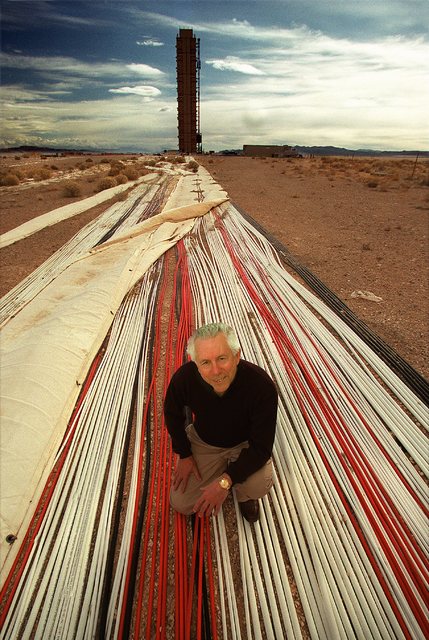

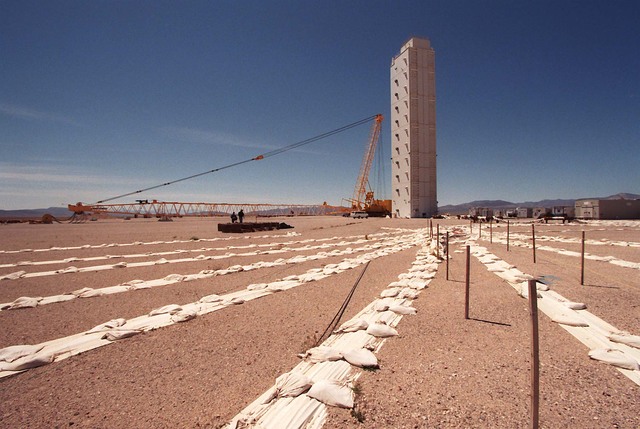
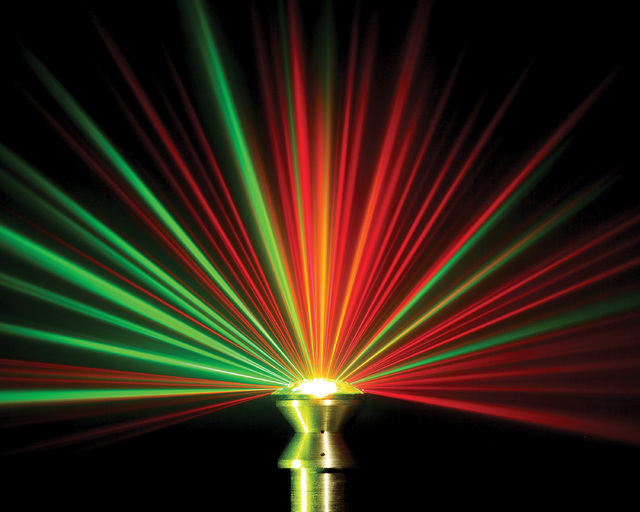
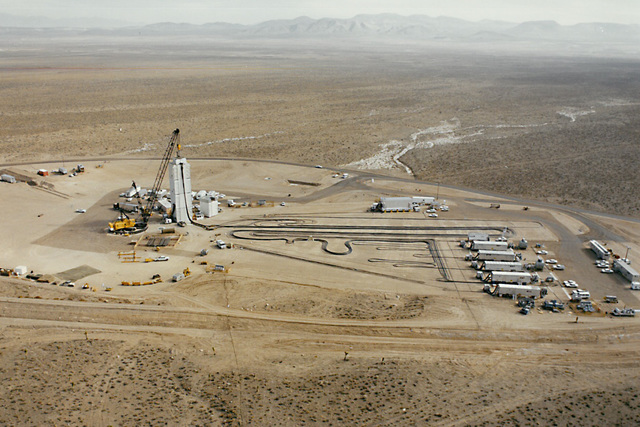
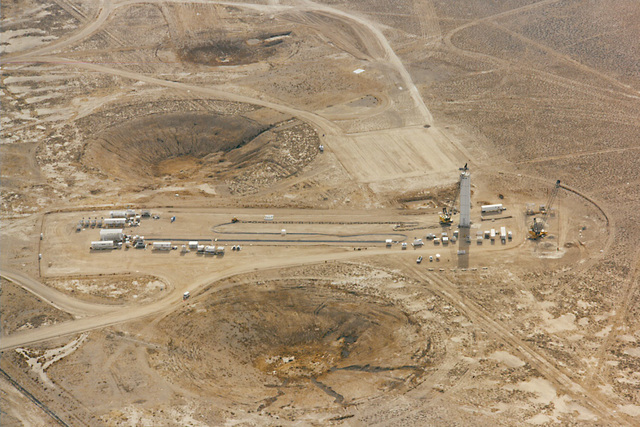
It’s been nearly 25 years — 8,887 days, to be precise — since the United States last detonated a nuclear bomb beneath the Nevada desert. A tweet last month by President Donald Trump has many Americans wondering whether that long hiatus is about to end.
Policy experts, scientists and foes of nuclear weapons are divided on the implications of Trump’s Twitter vow last month that the United States will “greatly strengthen and expand its nuclear capability” on his watch. Some predict it could signal a rekindled arms race.
But they agree what it would mean if an expansion includes adding new types of weapons to the U.S. nuclear arsenal: the resumption of some form of testing at the Nevada National Security Site, 65 miles northwest of Las Vegas.
As with many of the new president’s 140-character policy statements, the details of the new administration’s stance on nuclear weapons are not yet clear.
The United States must greatly strengthen and expand its nuclear capability until such time as the world comes to its senses regarding nukes
— Donald J. Trump (@realDonaldTrump) December 22, 2016
In a congressional hearing Thursday, former Texas Gov. Rick Perry — Trump’s pick to replace outgoing Energy Secretary Ernest Moniz — said he’ll be focused on “continuing to protect and modernize the nation’s nuclear stockpile.”
“As a former Air Force pilot during the days of the Cold War, I understand the deterrent value of our nuclear weapons system and the value of the vital role they play in keeping the peace,” said Perry, 66.
But when Sen. Bernie Sanders, D-Vt., asked Perry for assurances that Perry would support a ban on nuclear testing, the nominee declined to take the bait.
“I think anyone would be of the opinion that if we don’t ever have to test another nuclear weapon that would be a good thing, not just for the United States but for the world,” he said.
In response to a query from the Review-Journal, Perry’s spokesman, Marc Palazzo, declined to elaborate on the nominee’s view of what modernizing the nuclear stockpile should entail.
TESTING MORATORIUM
Since the last, full-scale test at the sprawling Nevada site — Divider, on Sept. 23, 1992 — scientists have certified the safety and reliability of U.S. nuclear weapons with physics tools and by detonating tiny bits of plutonium in underground “subcritical” experiments.
The moratorium on full-scale testing announced by President George H.W. Bush after Divider has been extended by all presidents through the Obama administration, meaning a generation of Americans has grown up without ever hearing or reading reports of a domestic nuclear test.
The most palpable reminders of that bygone arms race era are the National Atomic Testing Museum in Las Vegas and the tower for the test that was to have followed Divider – known as Icecap – standing forlornly amid tumbleweeds on the security site’s desolate Yucca Flat. 
But some U.S. nuclear policy experts believe testing should resume, though on a smaller scale than the big underground blasts and preceding atmospheric tests conducted at the site and over the Pacific Ocean in the 1950s.
Former Ambassador C. Paul Robinson, chief negotiator for the Geneva nuclear testing talks during the Reagan administration, said Trump’s tweet gives rise to the possibility the new president will break the moratorium with low-yield testing — “on the order of a kiloton.”
Such a test would be about 1/150th the size allowed under the 1974 Threshold Test Ban Treaty and “wouldn’t shake any hotels in Las Vegas,” he said.
Robinson, speaking by phone from his home in Boulder County, Colorado, said testing might be needed to give Trump or future commanders-in-chief assurance that the weapons will still work.
Plutonium, the substance that powers nuclear bombs, appears to be holding up fairly well in the U.S. stockpile, based on experiments conducted at the Nevada site.
‘YOU’RE GOING TO LIVE WITH UNCERTAINTY’
But according to Robinson, plutonium in America’s last-generation weapons continues to degrade, so at some point testing will be needed to assure the stockpile is reliable.
“If you don’t test, you’re going to live with uncertainty,” he said. “Quantifying that uncertainty is where were are right now with (science-based) stockpile stewardship.”
He also says that the testing moratorium has stifled research of new nuclear weapons, noting that Russia claims to have developed a new family of nuclear warheads “that are supposedly pure fusion.”
“We would be catching up” if the U.S. resumed testing of new classes of weapons, he said.
Several other nuclear weapons experts interviewed by the Review-Journal shared Robinson’s views.
Kathleen Bailey, senior associate at the National Institute for Public Policy, said low-yield testing merits consideration, though not full-scale testing.
She believes, though, the benefits of such testing depend on “two hard-nosed assessments.”
“One is to assess whether very low-yield testing would provide significant technological advantage to our weapons-design capabilities and stockpile reliability,” she said by email. “The other is to assess the level at which the Russians and, probably, the Chinese have been testing at in order to interpret the (Comprehensive Test Ban Treaty) properly.”
Bailey was referring to an international treaty that would ban all nuclear explosions, whether for military or for peaceful purposes. The treaty has never been ratified by all the signatories, including the U.S., and many potential nuclear-capable countries have not signed it. But all nations except North Korea have abided by their interpretation of the treaty since 1999.
Bailey said the United States interprets the treaty to allow for only “zero-yield” tests, such as the subcritical experiments. But because those words are not in the treaty or agreed to in negotiations, the possibility exists that other countries have been conducting tests that produce low yields, she said.
PRO NUKES AND NO NUKES
Troy Wade, of Las Vegas, who served as the Department of Energy’s defense programs chief during the Reagan administration, said he favors resumption of nuclear weapons testing because he fears the U.S. program “is not in as good as shape as it ought to be.”
“What do you do? Do you just start testing again? A lot of people would like to see that happen,” said Wade, who oversaw more than 15 facilities where nuclear weapons were researched, developed, tested and produced in 1987 and 1988.
“Do you do that knowing that the minute you do other countries are going to end up testing or attempting to test?” Wade said last week at the National Atomic Testing Museum.
The international reaction if the U.S. resumed testing also would be accompanied by a domestic outpouring from opponents of nuclear weapons.
One of the harshest critics, anti-war activist Daniel Ellsberg, says he believes it is “very, very unlikely” the Trump administration will resume full-scale nuclear weapons testing.
“I would say it would be disastrous for the world” because India and Pakistan, which have atomic bomb capability, would also resume testing to develop more powerful and devastating hydrogen bombs, said Ellsberg, a former Marine officer and Rand Corp. consultant who leaked the Pentagon Papers in 1971, a secret defense study about U.S. political and military involvement in the Vietnam War.
RACE TO BUILD ‘DOOMSDAY MACHINES’
“In a few years India would have an H-bomb and that would raise the stakes very dramatically,” he predicted, adding that other countries also would be expected to start working on their own “doomsday machines.”
That would not bode well for world stability. “It raises the risk of causing a large war,” Ellsberg said by phone from his home in Kensington, California.
Marylia Kelley, of the San Francisco Bay Area anti-nukes group Tri-Valley Communities Against a Radioactive Environment, is not at all certain that Trump won’t order a resumption of testing, saying the new president’s tweet “worries me.”
“It appears to foreshadow an unfortunate acceleration of a potentially catastrophic new nuclear arms race,” she said.
Noting that the U.S. already has embarked on a 30-year, $1 trillion effort to design, develop and produce new and modified nuclear warheads and delivery systems, she said was frightened to read about a follow-up comment Trump reportedly made to explain his tweet, saying that the U.S. will “outmatch” other countries in the event of an arms race.
“This is dangerous in the extreme — a future in which our children and grandchildren cower under desks in new ‘duck-and-cover’ drills is not a future we should seek,” she said.
Kelley was among the thousands who converged on the Nevada Test Site in the waning years of full-scale nuclear testing to protest and hold vigils at Peace Camp, near the road leading to the Nevada National Security Site’s Mercury entrance. More than 15,740 protesters were arrested there in civil disobedience trespass actions from 1986 through 1994.
If U.S. nuclear weapons testing resumes at any level, Kelley promises a resumption of protests.
“We’ll get the band back together,” she said.
Contact Keith Rogers at krogers@reviewjournal.com or 702-383-0308. Find him on Twitter: @KeithRogers2












